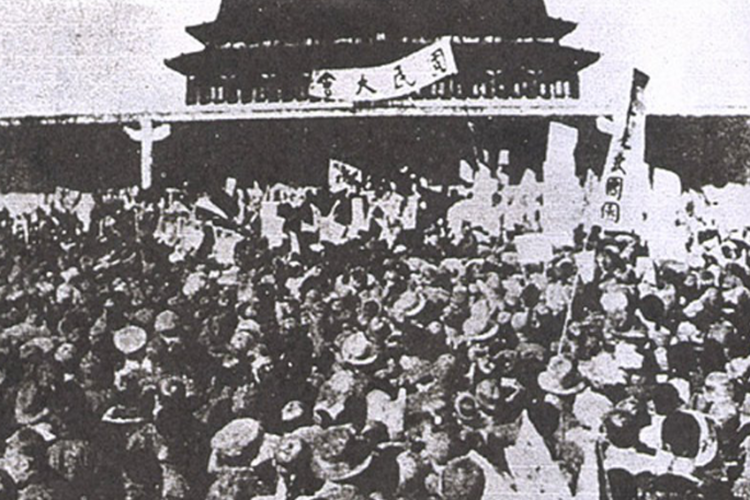May Fourth at 100: Reflections on a Movement that Changed China
-----
 On May 4th, 1919, a series of protests erupted in Beijing. Triggered by the signing
of the Treaty of Versailles, which gave Japan control over former German territories
in northeast China, the protests quickly spread throughout the country. Student leaders
advocated for the large-scale political mobilization of the Chinese masses, and in
the weeks and months that followed, the focus of the demonstrations expanded. Together,
protestors called for China to adopt science, democracy, feminism, labor rights, and
vernacular literature in the quest for national sovereignty. As the first populist
movement in modern China, the May Fourth Movement has continued to be invoked into
the present.
On May 4th, 1919, a series of protests erupted in Beijing. Triggered by the signing
of the Treaty of Versailles, which gave Japan control over former German territories
in northeast China, the protests quickly spread throughout the country. Student leaders
advocated for the large-scale political mobilization of the Chinese masses, and in
the weeks and months that followed, the focus of the demonstrations expanded. Together,
protestors called for China to adopt science, democracy, feminism, labor rights, and
vernacular literature in the quest for national sovereignty. As the first populist
movement in modern China, the May Fourth Movement has continued to be invoked into
the present.
What are the contemporary implications of May Fourth? How has the movement been remembered and reclaimed a century after it first broke out? Join the Long US-China Institute on the centenary of the event to hear historians, social scientists, and literary scholars explore how the May Fourth “spirit” continues to live on in China today.
Light afternoon refreshments will be provided.
RSVP
SCHEDULE
9:30 a.m.
Welcome and Opening Remarks
9:45-11:00 a.m.
Panel 1: Protest
Jeff Wasserstrom (UC Irvine); Teresa Wright (CSULB); Lev Nachman (UC Irvine)
11:00-11:15 a.m.
Break
11:15 a.m.-12:30 p.m.
Panel 2: Science & Democracy
Emily Baum (UC Irvine); Yangyang Cheng (Cornell); Li Zhang (UC Davis)
12:30-2:00 p.m.
Lunch
2:00-3:15 p.m.
Panel 3: Literature
Hu Ying (UC Irvine); Xue Yiwei (Independent writer); Eileen Cheng (Pomona)
3:15-3:30 p.m.
Break
3:30-4:45 p.m.
Panel 4: Gender & Feminism
Maura Cunningham (Independent Scholar); Wang Feng (UC Irvine); Margaret Kuo (CSULB)
4:45-5:00 p.m.
Closing Remarks and Discussion
-photo courtesy of Wikipedia
-----


